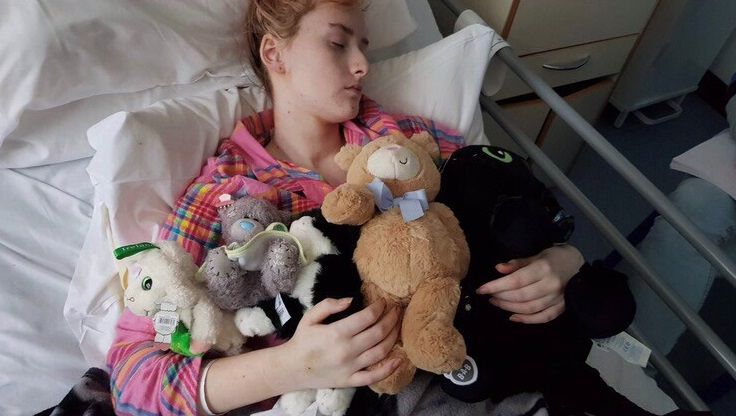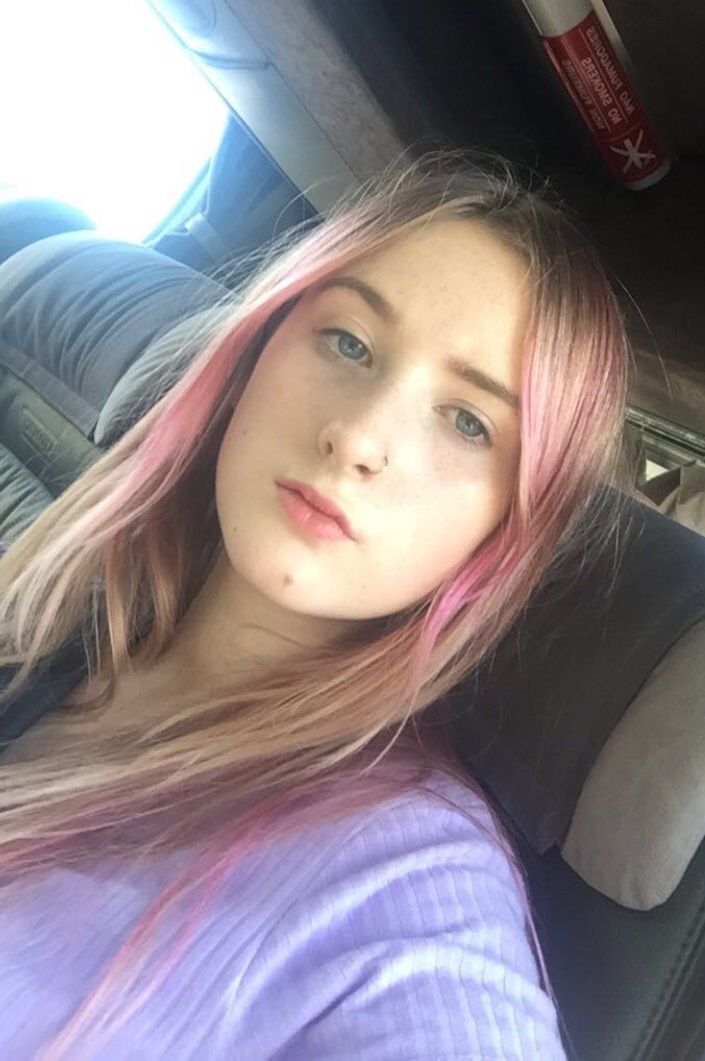A NORTH Belfast teenager is supporting a new campaign to highlight common brain tumour symptoms.
Amber Hanna (18) is championing the Brain Tumour Charity’s new 'Better Safe than Tumour' campaign which was launched this month.
The campaign aims to make the public aware of the possible signs and symptoms and to encourage them to get any concerning or persistent symptoms checked out by a doctor.
In adults, this includes persistent or severe headaches which may be worse in the morning, changes to vision including blurring and double vision, tiredness, nausea, speech difficulties and seizures.
In children, symptoms may also include balance, co-ordination or walking problems, loss of taste and smell, abnormal head position, regular sickness, especially in the morning, and excessive thirst.
Amber had been having severe headaches and fatigue for around six years, which she tried to contend with alongside her school studies but the pain was often unbearable.
Her mum Daniella did take her to the GP, especially when she started being sick regularly, but her symptoms were put down to stress.
One night, Amber was very sleepy, slurring her speech and vomiting, so Daniella called an ambulance. Amber was taken to hospital where an MRI scan found the choroid plexus papilloma brain tumour.
She had a series of operations to drain the fluid in her brain and remove as much of the tumour as possible and her condition is now monitored with regular scans.
Daniella said: “I didn’t know anything about brain tumours at all so I had no idea about what could be making her so unwell. As time went on, we were increasingly concerned about what it could be.
"Looking back now, I wish that I had pushed for scans, but I trusted the medical expertise and advice we were given.”
Amber said: “I knew in myself that something was wrong. But I had never even heard of a brain tumour though so I didn’t know what could be happening. I definitely didn’t know that brain tumours are quite as common as they actually are.

“As I gradually found out more, I was both worried about what the diagnosis meant as well as relieved that I finally had an answer to what had been happening to me.
“I really think that campaigns like ‘Better Safe Than Tumour’ are really needed. Brain tumours can be deadly and so many people don’t know about them and not enough research is done into them.
“I think if there were more awareness about the disease then people like me would have seen the signs coming and we would have been empowered to do something about it before I nearly lost my life to it.”
While the disease remains relatively rare overall, the number of people being diagnosed with a brain tumour rose from 6,577 in 2001 to 9,960 in 2019.
Over 12,000 people are diagnosed with a brain tumour in the UK each year, with almost 5,000 people losing their lives to the disease annually.
Experts believe the increase in cases in recent years could be explained by the ageing of the population and advances in detection and clinical practice – including the adoption of new diagnostic and imaging tools, molecular testing, new surgical techniques and improved classification and data collection.
In addition, around 40 per per cent of cases are still diagnosed in A&E and there was an increase in emergency presentations seen in 2020 due to the pandemic.
Do you know how to spot the signs and symptoms of a brain tumour?
— Feryal Clark MP (@FeryalClark) July 18, 2022
Check out @BrainTumourOrg's symptom checker today 👇#BetterSafeThanTumourhttps://t.co/VZOzPMCZmU
It is hoped that the campaign will support more people to recognise the symptoms and visit their GP to rule out brain tumour and help ensure those who do have a brain tumour can be diagnosed and receive the care and support they need at the earliest opportunity.
Dr David Jenkinson, Chief Scientific Officer at the Brain Tumour Charity, which funds world-class research and provides trusted support for anyone affected by the disease, said: “We’re really grateful to Amber for supporting the Brain Tumour Charity’s ‘Better Safe Than Tumour’ campaign by sharing her story to highlight just why we need to raise more awareness of the disease.
"These worrying figures show how urgently we need to act on this.
"While brain tumours remain relatively rare, incidence has continued to rise significantly over the last two decades, and this has unfortunately not yet been matched by the tangible progress in diagnosis, treatment and survival outcomes seen in many other cancers.
"We absolutely want to reassure people, that despite this increase in cases, brain tumours are still uncommon but it’s so important that we see greater awareness of the signs and symptoms of the disease to ensure anyone affected can get the diagnosis, treatment and support they need at the earliest opportunity.
“The warning signs vary by age group, as well as due to the type of tumour and where in the brain it is located. We’d encourage anyone who is worried about a symptom that’s unusual for them, and particularly if it is persistent or they experience a combination of symptoms, to speak to their doctor to help rule a brain tumour out."








